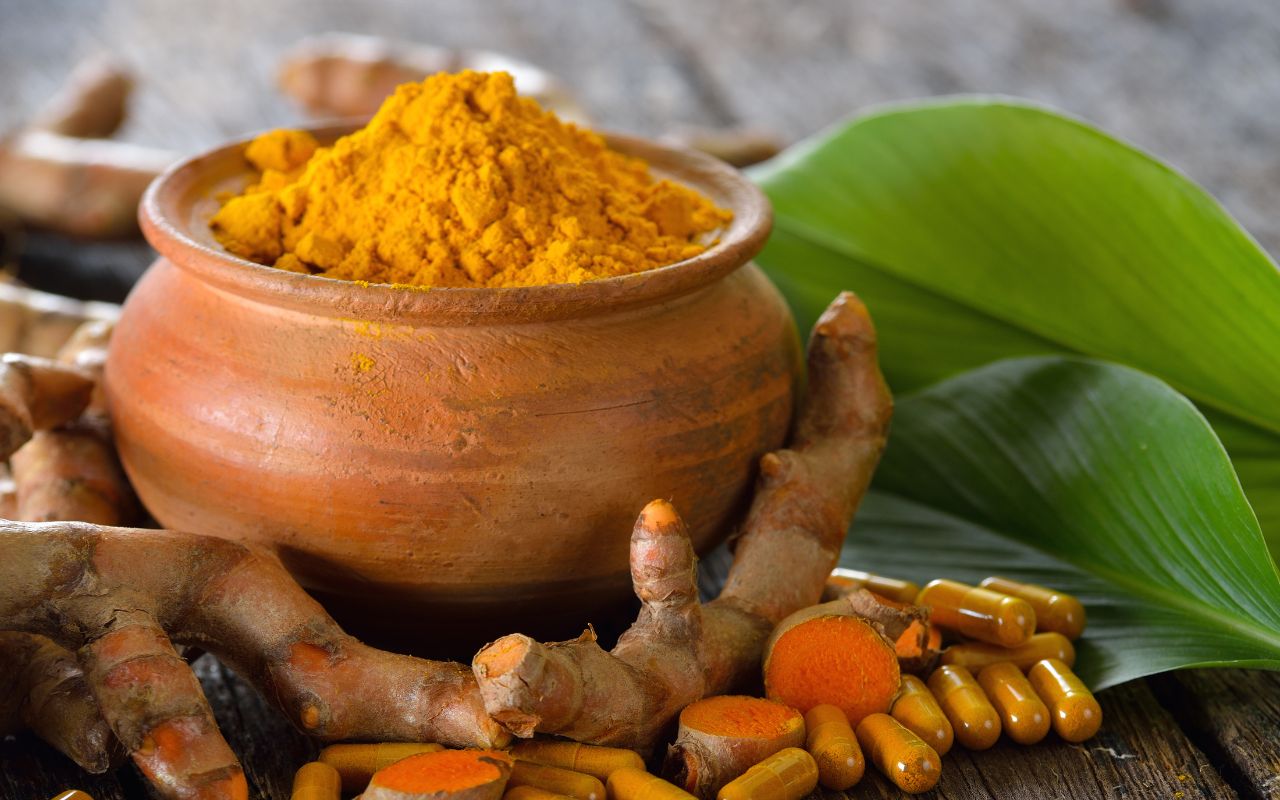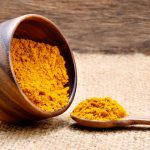In recent years, turmeric has garnered significant attention for its purported health benefits, becoming a staple in wellness circles worldwide. Known as the “golden spice,” turmeric (Curcuma longa) boasts a vibrant yellow hue and a rich history dating back 4,000 years to the Vedic culture in India. It's a culinary delight, enhancing flavors in many dishes, and a powerhouse in traditional medicine. This comprehensive guide will delve into the myriad benefits, scientific backing, and practical usage of turmeric daily.
Turmeric’s primary active ingredient, curcumin, is the driving force behind its medicinal properties. Curcumin accounts for turmeric's anti-inflammatory, antioxidant, and potential anticancer properties. Despite its remarkable qualities, curcumin has a downside: poor bioavailability. However, there are ways to enhance its absorption, which we will explore in detail.
The Potent Anti-Inflammatory Properties of Turmeric
Inflammation is a natural bodily response to injury and infection, but chronic inflammation is linked to numerous health issues such as heart disease, cancer, and Alzheimer’s disease. Turmeric’s anti-inflammatory abilities are well-documented in scientific literature. Curcumin, in particular, targets multiple steps in the inflammatory pathway at the molecular level. It blocks NF-kB, a molecule that travels into the nuclei of cells and turns on inflammation-related genes. This action may combat chronic inflammation effectively.
A 2016 systematic review and meta-analysis of randomized controlled trials revealed that curcumin significantly reduces pain scores in patients with arthritis, comparable to traditional analgesics like ibuprofen and diclofenac. This finding underscores turmeric's potential as a natural alternative for managing chronic inflammatory conditions.
Antioxidant Powerhouse: Protecting Your Cells
Oxidative stress significantly contributes to the aging process and the development of many diseases. It occurs when free radicals, unstable molecules that can damage cells, accumulate in the body. Antioxidants are crucial because they protect the body from the damage caused by free radicals.
Curcumin, the active compound in turmeric, is a potent antioxidant that can neutralize free radicals due to its chemical structure. Moreover, curcumin boosts the activity of the body’s antioxidant enzymes, creating a double-edged sword against oxidative stress. This synergistic effect enhances the body’s defense mechanisms, protecting cells from damage and potentially reducing the risk of chronic diseases.
Turmeric for Heart Health
Heart disease remains the leading cause of death globally. Curcumin may improve heart health by reversing many steps in the disease process. One of the main benefits of curcumin in treating heart disease is improving the function of the endothelium, which is the lining of the blood vessels. Endothelial dysfunction is a major driver of heart disease and involves the endothelium's inability to regulate blood pressure, blood clotting, and various other factors.
Several studies suggest that curcumin improves endothelial function. For instance, a study on turmeric and its impact on cardiovascular health found that it’s as effective as exercise in improving endothelial function in post-menopausal women. Additionally, curcumin has anti-inflammatory and antioxidant effects that contribute to heart health.
Turmeric's Role in Brain Health
Brain-derived neurotrophic factor (BDNF) is a type of growth hormone that functions in the brain. Many common brain disorders, including depression and Alzheimer’s disease, have been linked to decreased levels of this hormone. Interestingly, curcumin can increase brain levels of BDNF. By doing this, it may be effective in delaying or even reversing many brain diseases and age-related decreases in brain function.
There is also some evidence that curcumin can boost the levels of serotonin and dopamine, which are neurotransmitters that play critical roles in mood regulation. This suggests that turmeric could be beneficial in managing depression and anxiety, although more research is needed in this area.
Anti-Cancer Properties
Cancer is a dreadful disease characterized by uncontrolled cell growth. There are many different forms of cancer, but they have several commonalities, some of which appear to be affected by curcumin supplementation. Researchers have studied curcumin as a beneficial herb in cancer treatment. It can affect cancer growth, development, and spread at the molecular level.
Studies have shown that it can reduce angiogenesis (the growth of new blood vessels in tumors) and metastasis (the spread of cancer) and contribute to the death of cancerous cells. Research also indicates that curcumin can reduce the growth of cancerous cells in the laboratory and inhibit the growth of tumors in test animals. However, more clinical trials in humans are still needed to confirm these findings.
Turmeric for Arthritis Relief
Arthritis is a common disorder characterized by joint inflammation. Given that curcumin is a potent anti-inflammatory compound, it makes sense that it would help with arthritis. Several studies show this to be true. In a study comparing curcumin to anti-inflammatory drugs, curcumin was effective at reducing arthritis symptoms. It was, in some cases, more effective than anti-inflammatory drugs.
Enhancing Bioavailability
One of the main issues with curcumin is its poor bioavailability. This means that it is poorly absorbed into the bloodstream. To experience the full benefits of curcumin, its bioavailability needs to be improved. Fortunately, there are several ways to do this:
- Black Pepper: Piperine, a natural substance found in black pepper, enhances the absorption of curcumin by 2,000%. This combination is often found in curcumin supplements.
- Fat Solubility: Curcumin is fat-soluble, breaking down and dissolving in fat or oil. Therefore, consuming curcumin supplements with a meal high in fat can increase absorption.
- Turmeric with Bromelain: Bromelain, an enzyme found in pineapples, can also increase the absorption of curcumin, making it an effective combination for supplements.
Practical Ways to Include Turmeric in Your Diet
Incorporating turmeric into your diet can be both simple and delicious. Here are some practical tips:
In Cooking
Turmeric is a versatile spice that can be added to various dishes. It is commonly used in Indian curries, but its application is extensive:
- Sprinkle it on roasted vegetables: For a flavorful boost, add a dash of turmeric along with other spices like cumin and paprika.
- Stir it into soups: A pinch of turmeric can enhance the color and flavor of your favorite soups and stews.
- Use it in marinades: Turmeric can be an excellent addition to meat, fish, or tofu marinades.
- Mix it into rice or quinoa: Turmeric can impart a beautiful golden color and a subtle flavor by being added to the cooking water of rice or quinoa.
In Beverages
Turmeric can also be incorporated into various beverages:
- Golden milk: A popular beverage made with milk (dairy or plant-based), turmeric, black pepper, and other spices like cinnamon and ginger.
- Smoothies: A small amount of turmeric can be added to smoothies for an extra health boost.
- Turmeric tea: Known as “golden tea,” this is made by simmering turmeric with water and black pepper, sometimes adding honey and lemon for flavor.
Supplements
Supplements are an alternative for those who find it challenging to incorporate enough turmeric into their diet. However, it's essential to approach turmeric supplements with caution. Always consult with a healthcare provider before starting any new supplement regimen. High doses of turmeric supplements may interact with certain medications and are not recommended for individuals with specific conditions. The British Heart Foundation provides a detailed discussion on the matter here.
Potential Risks and Considerations
While turmeric is generally safe for most people, there are some considerations to keep in mind:
- Pregnancy: Pregnant women should avoid taking large doses of turmeric supplements, as it may stimulate contractions or other hormonal changes. Small amounts used in cooking are generally considered safe.
- Gallbladder problems: Turmeric may worsen gallbladder disease due to its ability to stimulate bile secretion.
- Bleeding disorders: Turmeric can slow blood clotting and may increase the risk of bruising and bleeding in people with bleeding disorders.
- Diabetes: It may cause blood sugar levels to drop too low, especially when taken with diabetes medication.
Consulting with a healthcare provider is essential before starting any new treatment, particularly if you are taking medication or have underlying health conditions. For more information, visit the Mayo Clinic’s overview of turmeric.
Conclusion
Turmeric, often celebrated for its vibrant color and robust flavor, is much more than a culinary spice. Its primary active compound, curcumin, offers many health benefits, from potent anti-inflammatory properties to potential anticancer effects. While its poor bioavailability poses a challenge, combining turmeric with black pepper, fats, or supplements can enhance its absorption. Whether you incorporate it into your meals or take supplements, turmeric can be a valuable addition to a balanced diet.
However, it is essential to approach turmeric cautiously, understanding its interactions and potential risks, especially for specific populations. Consulting with healthcare providers ensures that you reap the benefits of this “golden spice” safely and effectively.
For further reading and a more detailed look into turmeric's benefits and precautions, explore the resources available on UnityPoint Health and the comprehensive guides on BBC GoodFood.
Embrace the golden spice with knowledge and enjoy its many benefits as a flavorful and health-enhancing addition to your life.










